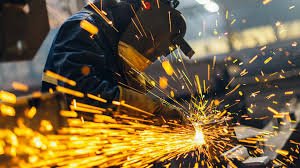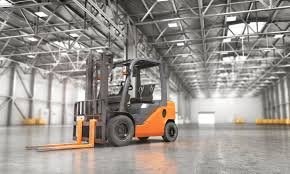Why Fabrication Outsourcing is the Key to Boosting Efficiency
Why Fabrication Outsourcing is the Key to Boosting Efficiency
Fabrication outsourcing is an effective strategy for businesses to streamline operations and reduce costs. By partnering with third-party service providers, companies can focus on their core strengths while benefiting from external expertise. This approach leads to increased productivity, cost savings, and the ability to easily scale operations. In this article, we’ll explore the various advantages of fabrication outsourcing and how it can transform your business.
What is Fabrication Outsourcing?
Fabrication outsourcing involves contracting external companies to handle the production of parts, components, or complete products. Instead of investing in in-house manufacturing capabilities, businesses delegate these tasks to specialized providers. This can include tasks like metalworking, welding, assembling, and machining. The goal is to optimize resources by focusing internal efforts on core business activities while relying on experts for production. By doing so, companies can avoid the heavy capital investment required for advanced machinery, skilled labor, and ongoing maintenance. Outsourcing also allows businesses to leverage the latest technologies without incurring significant costs.
Types of Fabrication
- Cost-Effectiveness
- Access to Specialized
- Enhanced Focus on core competencies
- scalability and flexibility
- Reduce time to market
Benefits of Outsourcing Fabrication Services
- Cost-Effectiveness: -Fabrication outsourcing allows businesses to significantly cut down on expenses related to manufacturing. Setting up and maintaining an in-house production facility requires a substantial investment in equipment, technology, and skilled labor. Outsourcing eliminates the need for this capital expenditure by transferring those responsibilities to external vendors. These vendors often operate on economies of scale, enabling them to offer more competitive pricing. Additionally, companies save on indirect costs such as utility bills, maintenance, and workforce management. This allows for a more flexible allocation of resources, ensuring that funds can be invested in areas like innovation or market expansion.
- Access to Specialized Expertise: -One of the greatest advantages of outsourcing fabrication is the access to a pool of highly specialized experts. These professionals bring years of experience in various manufacturing techniques such as laser cutting, welding, CNC machining, and more. External fabricators continuously invest in the latest technology and industry practices to stay competitive. This means businesses can benefit from state-of-the-art methods without needing to train or upskill their internal workforce. Moreover, the level of precision and expertise provided by these specialists ensures that products meet the highest quality standards. This leads to fewer defects, less rework, and faster delivery times.
- Enhanced Focus on Core Competencies: -Outsourcing fabrication allows businesses to concentrate their energy on what they do best, such as product development, customer relations, and strategic growth. When manufacturing is outsourced, companies can allocate internal resources more efficiently, dedicating time and effort to innovation and market differentiation. This shift enables leadership teams to focus on driving the company forward without being distracted by the day-to-day complexities of production. In competitive industries, this focus on core competencies is essential for staying ahead. Companies can enhance their value proposition, deliver superior customer experiences, and ensure long-term sustainability by allowing external partners to handle fabrication.
- Scalability and Flexibility: -Fabrication outsourcing provides businesses with the flexibility to scale production up or down based on market demand. During peak seasons or when new products are launched, outsourced fabricators can quickly ramp up production to meet increased needs without businesses having to invest in new infrastructure. Conversely, during slower periods, outsourcing allows companies to scale down production without the burden of idle machinery or staff. This scalability ensures that businesses can remain agile and responsive to changing market conditions. Additionally, outsourcing partners often offer customized solutions, allowing businesses to adjust their orders based on project-specific requirements, ensuring maximum efficiency.
- Reduced Time to Market: -Speed is often critical to success, especially in fast-paced industries. Outsourcing fabrication to specialized vendors helps accelerate the production process, allowing companies to bring products to market faster than if they handled manufacturing in-house. External fabricators have well-established processes and can leverage their expertise to optimize production timelines. This results in faster turnaround times, which are crucial for maintaining competitiveness and meeting customer expectations. Additionally, outsourcing reduces bottlenecks that may occur within a company’s internal production chain. With quicker production cycles, businesses can respond more effectively to market trends and customer demand, gaining an edge over competitors.

Key Considerations When Choosing a Fabrication Partner
- Industry Experience and Expertise: -When outsourcing fabrication, it is crucial to choose a partner with extensive experience in your specific industry. Different industries have unique requirements, standards, and regulations, which an experienced fabricator will already be familiar with. For example, aerospace fabrication differs significantly from automotive fabrication in terms of materials, precision, and safety standards. Ensuring that your partner has a proven track record in your industry reduces the risk of errors or non-compliance. Take time to review their portfolio, certifications, and client testimonials. Industry-specific knowledge will result in smoother collaborations, better communication, and higher-quality output.
- Quality Control and Assurance: -Quality control is one of the most important aspects of fabrication, and it should be a top priority when selecting an outsourcing partner. Make sure that the vendor has a comprehensive quality management system in place, including regular inspections and testing procedures. High-quality standards ensure that the end products meet your specifications, reducing the likelihood of rework or product failure. Additionally, inquire about their use of advanced testing methods such as non-destructive testing (NDT) or automated quality assurance (QA) technologies. A reliable partner will have stringent quality assurance protocols that guarantee every product meets industry standards.
- Transparent Communication: -Effective communication is key to a successful outsourcing partnership. From initial discussions to ongoing collaboration, transparency in pricing, timelines, and production updates is essential. Look for a partner who is open to discussing potential challenges and providing regular progress reports. Clear communication ensures that both parties are aligned in terms of expectations, which reduces the risk of misunderstandings. Having a dedicated point of contact within the outsourcing company can help streamline the process, ensuring that any issues are addressed promptly. Transparency also fosters trust, which is critical for long-term partnerships that evolve. Staffing: Definition, Meaning, and Functions
Industries That Benefit From Fabrication Outsourcing
Fabrication outsourcing is widely utilized across various industries, each of which benefits in different ways. In the automotive sector, outsourcing is essential for producing engine parts, frames, and electronic components. In aerospace, companies rely on outsourced partners for the precision fabrication of fuselages, landing gear, and structural components. Construction firms often outsource steel fabrication, metalworks, and prefabricated modules, allowing them to focus on project management and on-site execution. In the electronics industry, outsourcing is key to the production of components like printed circuit boards (PCBs), ensuring that technology manufacturers can meet high demand with consistent quality.
Maximizing Profits with Outsourcing
Outsourcing fabrication plays a significant role in maximizing a company’s profitability. By reducing internal manufacturing costs and improving operational efficiency, businesses can achieve higher margins on their products. The reduction in capital expenditure allows companies to invest more in other areas, such as marketing, research, and development. Additionally, outsourced fabricators often provide volume discounts, which further enhances cost savings. This results in a more streamlined production process, faster turnaround times, and fewer errors, all of which contribute to higher profitability. By optimizing production and focusing on core business functions, companies can drive sustained growth and profitability.
Conclusion: A Smart Move for Growing Businesses
Fabrication outsourcing offers a multitude of benefits for businesses looking to reduce costs, improve efficiency, and scale operations. By selecting a reliable partner, companies can access top-tier expertise, advanced technologies, and flexible production capabilities. Outsourcing allows businesses to maintain their competitive edge while focusing on core competencies, ensuring long-term success. For companies in industries that demand high-quality manufacturing and fast turnaround times, fabrication outsourcing is a strategic move that delivers both operational and financial benefits.





